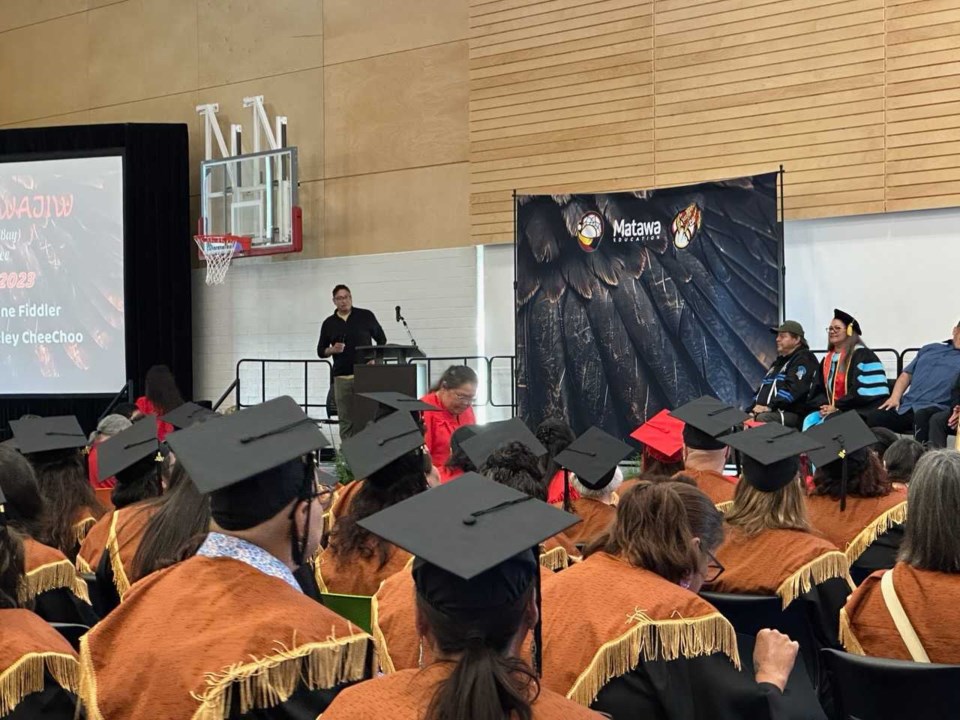THUNDER BAY — Officials with Matawa First Nations say a program aimed at revitalizing three Indigenous languages spoken across Northern Ontario faces “full suspension” due to a lack of long-term funding commitments.
The Matawa Waka Tere (Indigenous Language Revitalization) program has been running in all nine Matawa communities and in Thunder Bay for the past two years, said a release from the organization, adding that because of a lack of sustainable funding, it is now running in a scaled-down iteration.
“Ten years ago, Matawa leadership prioritized the revitalization of our Indigenous languages as a nation-building tool recognizing language loss as a historical trauma,” Matawa CEO Sharon Nate was quoted as saying in a media release issued Thursday.
“After seven years of commitment, the federal Indigenous Languages Act … is falling short in providing long-term, sustainable support. The Government of Canada must be held accountable for these obligations.“
The act notes that discriminatory policies and practices over Canada’s history, such as residential schools and the Sixties Scoop “contributed significantly to the erosion of those languages,” and “the Government of Canada is committed to providing adequate, sustainable and long-term funding for the reclamation, revitalization, maintenance and strengthening of Indigenous languages.”
Indigenous language rights are also inherent rights under the 1982 Constitution Act and the United Nations Declaration on the Rights of Indigenous Peoples which the federal government committed to implementing in 2021.
In Matawa’s media release, Nate also called on the Ontario government “to recognize its role in advancing reconciliation by stepping forward with tangible investments.” Most of the organization’s funding proposals have been submitted to federal and private agencies with none approved for the 2025-2026 fiscal year and beyond.
Matawa Waka Tere has provided instruction in the Ojibwe, Cree and Oji-Cree languages. Ninety students graduated in one cohort alone in 2024.
If the program were to be suspended, it would affect 41 staff, Matawa said.
The media release from Matawa also cited a letter from Ontario Regional Chief Abram Benedict last July to former Prime Minister Justin Trudeau saying “as the Prime Minister of Canada, we implore you to recognize and entrench First Nations language rights into the Indigenous Languages Act and to ensure adequate funding is provided to revitalize and stabilize First Nations languages.”
Matawa officials said they echo that statement and call on the next Prime Minister “to prioritize First Nation languages.”
The federal election is April 28.
Matawa also pointed to British Columbia as an example where Indigenous communities, the province and other organizations have led to strong partnerships and noticeable outcomes in terms of revitalizing Indigenous languages.
“We are calling on both the federal and provincial governments to act—now,” Nate was quoted as saying. “We need a made-in-Ontario solution for language revitalization that reflects our unique histories and realities.”
“This is not only a matter of culture; it is a matter of justice and reconciliation.”
